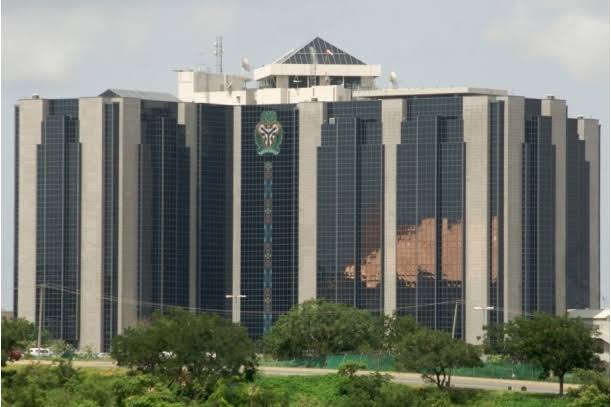Business
Intervention: CBN boosts non-oil export earning with RT200

BY EMEKA EJERE
The Central Bank of Nigeria (CBN) under the leadership of the suspended governor, Godwin Emefiele, places a high premium on the diversification of Nigeria’s foreign exchange earnings through non-oil exports.
With crude oil accounting for over 90 percent of its foreign exchange earnings, the Nigerian economy goes into severe shocks and recessions each time the oil market is depressed.
In a bid to reverse the ugly trend, In February 2022, the apex bank in collaboration with the Bankers’ Committee, unveiled a programme to boost non-oil exports and reparation of their proceeds.
Tagged: RT 200 Non-Oil Exports Proceeds Repatriation Programme (RT200), the scheme aims to raise $200 billion in FX earnings from non-oil proceeds over the next three to five years. It is being implemented in close collaboration with the commercial banks.
At the core of the programme is a rebate scheme that is designed to incentivise non-oil exporters to repatriate their FX earnings and sell such earnings in the FX market. So, for every dollar repatriated and sold in the I&E (investors and exporters) window to third parties, the exporter shall receive N65 and for every dollar repatriated and sold into the I&E for own use, the exporter receives N35.
The idea is for the country to earn more stable and sustainable FX inflows in order to insulate the economy from shocks and FX shortages. Africa’s largest economy has plunged into two recessions in the last eight years following steep dives in oil prices.
Unlike other incentive schemes, RT 200 focuses mainly on exports of finished and semi-finished goods wholly/partly processed or manufactured in Nigeria and export of goods and services (IT and creative businesses) that are permissible and excluded under existing export prohibition list.
What this means is that Innoson vehicles, Dangote Urea fertiliser and many other goods manufactured in-country are eligible for this incentive.
To assess the performance of this programme and evaluate the challenges it faces, the CBN convenes a summit of exporters, bankers and other stakeholders in the non-oil export ecosystem twice a year to review progress made.
Success story
At the third of such summits which took place recently in Lagos, Mr. Emefiele was upbeat in his review.
“Available data shows that repatriation due to RT 200 increased by 40% from $3.0 billion in 2021 to $5.6 billion at the end of 2022. The momentum for 2023 is equally showing strong numbers and impressive prospects,” the now embattled governor had announced.
In the first quarter of 2023, a total of $1.7 billion was repatriated back into the Nigerian economy, while about $790 million was sold at the I&E window year-to-date. The balance of proceeds remains in the export domiciliary accounts of the exporters. However, such balances would not be eligible for rebate until they are sold into the economy.
But despite these successes, non-oil exports continue to face multifaceted challenges. The chief executive of Infrastructure Corporation of Nigeria, Lazarus Angbazo, dimensions those challenges to include weak logistics (shipping; customs; tracking, tracing; ports, roads, haulage infrastructure among others). There is also the problem of poor electricity supply.
The World Bank estimates that poor transportation infrastructure costs the country 2% in GDP loss, which is equivalent to $10 billion, and because of increased transportation costs, Nigerian goods are less competitive in the international market. Delays in deliveries lead to missed delivery deadlines and lost sales.
The global lender advices that the Federal Government needs to invest $3 trillion over 30 years in transportation infrastructures to address this challenge. Poor sanitation is also a challenge. The United Nations says poor sanitation costs the country $3 billion annually. It leads to quality issues, risks of damage/spoilage and reduced market value.
Conversely, good sanitation will lead to significant demand for materials and labour worth $8 billion. Insufficient electricity is a well-known limiting factor in every sphere of national and private life. Due to inadequate electrification, $29 billion is lost annually in Nigeria’s economy, according to the World Bank.
Broadband infrastructure is also crucial in driving non-oil exports as it improves market access and facilitates access to customers and off-takers. The Nigerian Communications Commission (NCC) states that the country requires a $5 billion investment for the 2020-2025 Broadband Plan.
Despite these problems, the CBN believes the country must continue to drive up non-oil exports and repatriation of proceeds. According to Emefiele, “countries all over the world are turning to export earnings and proceeds repatriation as a veritable means of bolstering foreign reserves, maintaining a robust balance of payments position and a stable source of foreign exchange inflows”.
In some countries, the repatriation period ranges from less than six months from the exportation of the product and could result in prosecution if the proceeds are not repatriated on time. In Ghana, for example, export earnings must be repatriated to the country at least 40 percent of which must be converted to the domestic currency within 15 working days of repatriation.
In India, the Foreign Exchange Regulation Act permits the realization and repatriation of export proceeds within nine months from the date of export. Many countries have these regulations to ensure effective export repatriation. The CBN and the Bankers’ Committee believe Nigeria cannot be left out in this direction.


